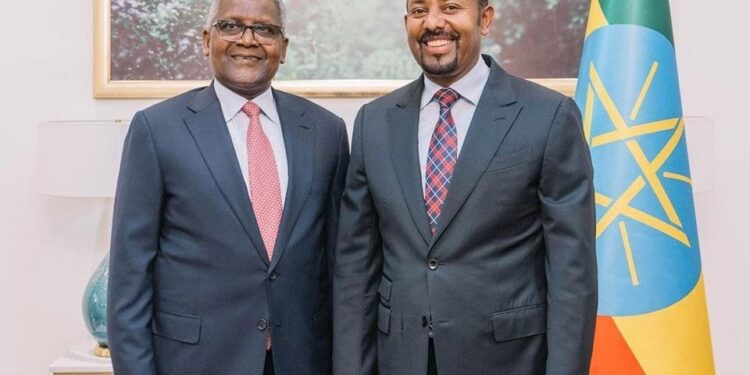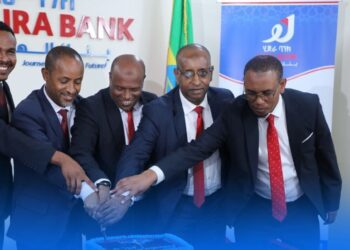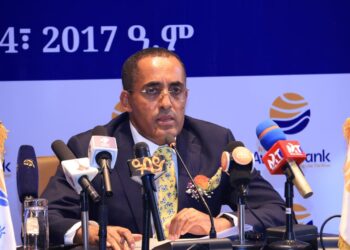In a major step toward ensuring agricultural self-sufficiency and reducing reliance on fertilizer imports, Ethiopia is set to sign a landmark agreement with Nigerian billionaire and industrialist Aliko Dangote to build a fertilizer factory in the Somali Regional State, Gode area. Prime Minister Abiy Ahmed (PhD) announced that the $3 billion deal will be formalized in mid-July.
“This project will ensure that Ethiopia has sufficient fertilizer for the next three years,” said the Prime Minister in a televised statement. “And more importantly, it positions us to meet future demand with local production.”
A Strategic Shift in Fertilizer Policy
The announcement comes amid ongoing concerns over fertilizer shortages and global price volatility driven by geopolitical instability, including the Russia–Ukraine war and Red Sea shipping disruptions. Ethiopia has traditionally imported hundreds of thousands of tons of fertilizer annually, straining foreign currency reserves and exposing farmers to supply shocks.
In recent months, the government has made fertilizer access a political and developmental priority. In April, the Ministry of Agriculture disclosed that only 40% of the fertilizer needed for the 2025 Meher season had arrived. Despite government efforts, including procurement from Morocco’s OCP and Russia’s Uralchem, logistics challenges persisted.
Dangote’s investment promises a structural solution. The factory, to be located in the resource-rich Somali region, is expected to produce urea and other nitrogen-based fertilizers, cutting Ethiopia’s dependency on imports and creating thousands of direct and indirect jobs.
Why Gode?
Gode is a strategic choice. The area is near the Ethiopia–Djibouti corridor, simplifying logistics for domestic distribution and potential exports to neighboring countries like Somalia, Kenya, and South Sudan.
The Ethiopian government has been pushing for industrial development in underutilized regions, especially in the east. In May 2025, Prime Minister Abiy visited the Somali region and promised major investments in infrastructure and energy to catalyze growth.
Dangote Group’s Regional Ambitions
For Dangote, the deal is part of a wider East African expansion strategy. His cement factory in Oromia has been operational since 2015, and the group has expressed interest in energy, petrochemical, and agricultural ventures across the continent.
The fertilizer sector has been a major focus for the tycoon. In 2023, Dangote launched Africa’s largest fertilizer plant in Nigeria — with a production capacity of 3 million metric tons per year. The Ethiopia project could mirror that scale, if not exceed it.
The Bigger Picture: Food Security and Economic Reform
This deal is not happening in isolation. Ethiopia is undergoing broad economic reform under its Homegrown Economic Reform II (HGER II) agenda, aiming to modernize agriculture, open up to foreign investment, and build industrial capacity.
The government has also recently:
- Liberalized fuel pricing to align with global market rates.
- Partnered with Morocco and China for agricultural knowledge transfer.
- Committed to a digital land registration system to improve land use efficiency.
- Announced the creation of a national food reserve agency.
By combining investment, policy, and diplomacy, Ethiopia appears to be pursuing long-term food and fertilizer sovereignty — a critical step for a nation whose economy depends on the agricultural sector, which employs nearly 70% of the workforce.
What’s Next?
The mid-July signing will be closely watched by investors, farmers, and development partners. If successfully implemented, the Dangote fertilizer factory could mark a new chapter in Ethiopia’s agricultural transformation — one where the country no longer waits for fertilizer ships to dock, but manufactures its own solutions from the ground up.
Source: Tikvah Ethiopia





















